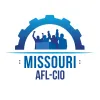Richard Trumka: The Labor Leader Who Told Hard Truths
here weren’t many strikes in recent decades in which working people scored big victories, but the 1989 Pittston strike was one. Two years earlier, the Pittston Coal Company, in Pennsylvania, dropped out of a trade group that had negotiated a union contract with the United Mine Workers, and the company demanded cuts to miners’ health benefits. A standoff ensued, and for more than a year Pittston’s miners worked without a contract and therefore without any health benefits at all.
Finally, in April 1989, the United Mine Workers’ 39-year-old president, Richard Trumka, called a strike. Inspired by Martin Luther King Jr., Trumka directed union members to adopt nonviolent protest methods such as using their bodies to block company trucks hauling coal. Mineworkers have a violent history, and Trumka’s instructions weren’t heeded by every last miner. But for the most part, the rank and file obeyed. Ten months after the strike began, Pittston reinstated full health benefits.
Trumka, who died in August at 72, went on to become president of the AFL-CIO, the biggest labor federation in America, where he continued to urge working people to heed the better angels of their nature.
